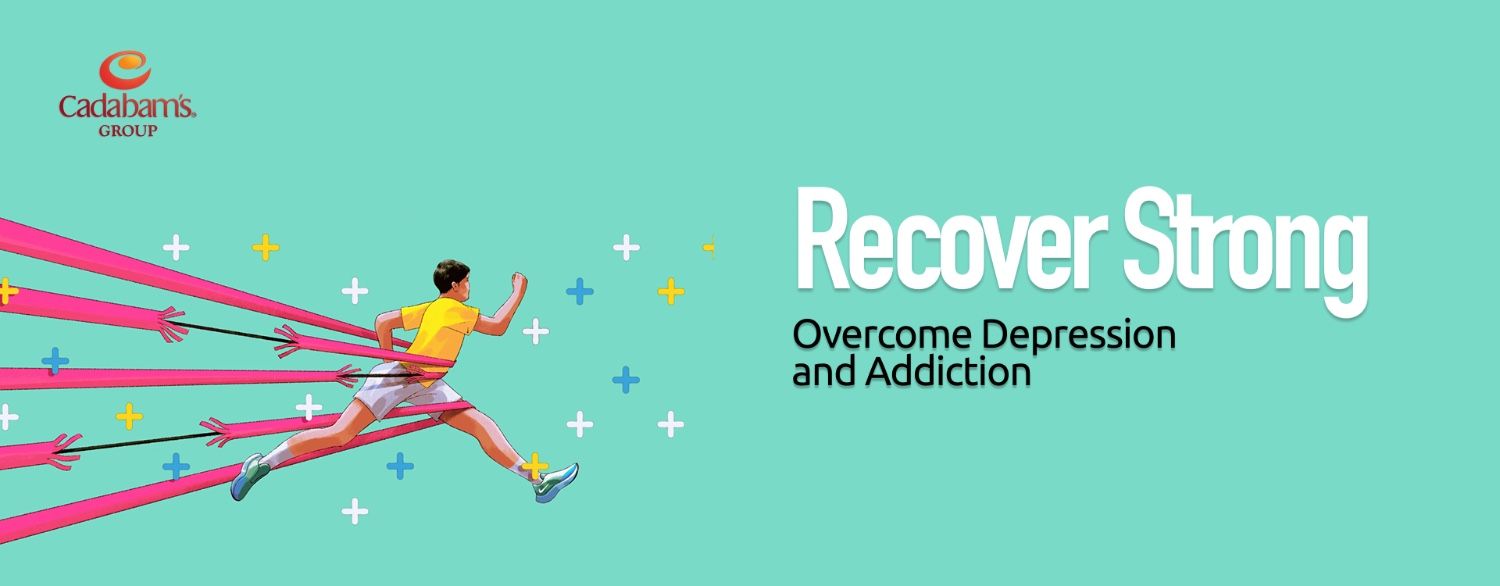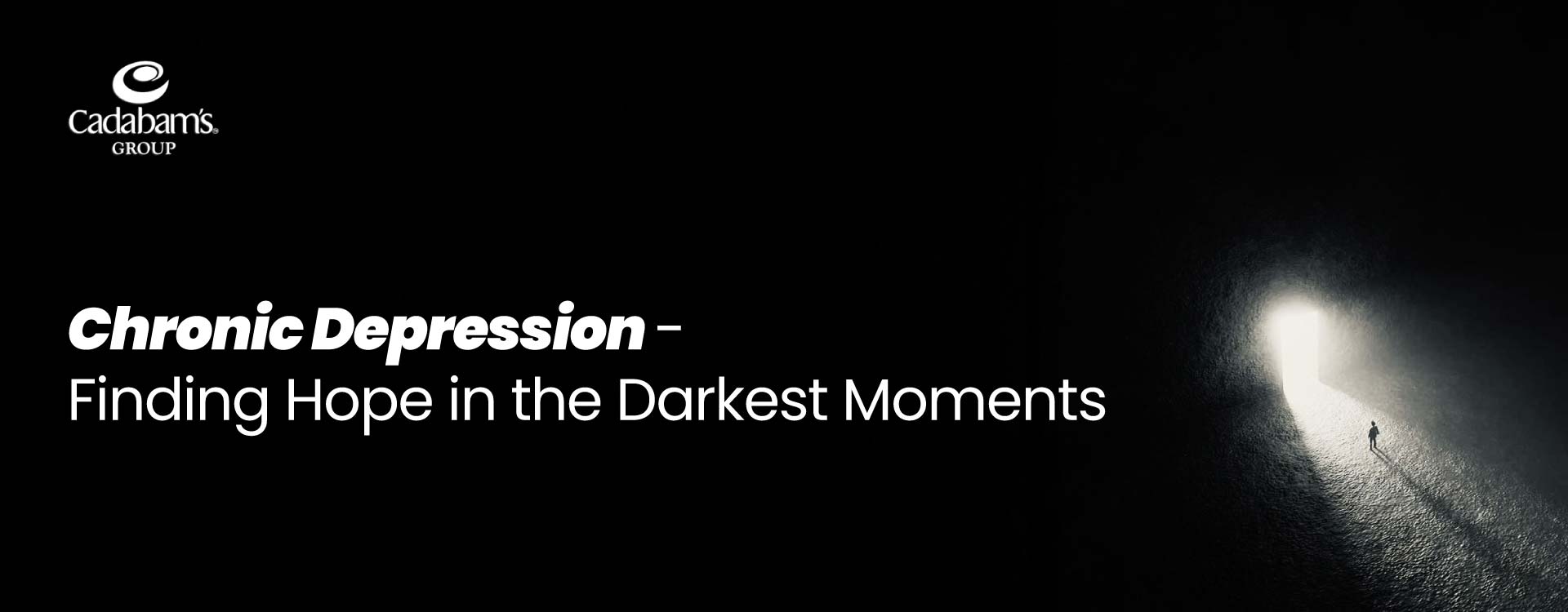Depression is a mental health disorder that causes a person to be continually depressed and lose interest in their daily activities which impacts their daily life. As per WHO reports, it is the leading cause of disability worldwide and is a major contributor to the overall global burden of disease. Depression is treatable and is easier to treat in the earlier stages. At Cadabam’s Hospitals, we offer comprehensive treatment for depression. Ours is an experienced multispecialty team of experts who have worked with countless people with depressive symptoms, including many severe cases. We offer end-to-end solutions for depression, assuring you of a lasting outcome, personalized experience, and happier life. If you or your loved ones are going through depression, please connect with us and get the needed help. Call us at +91 97414 76476.
Types of Depression
- Recurrent depressive disorder
- Bipolar disorder or manic depression
- Psychotic depression
- Peripartum (postpartum) depression: Occurs in women post-delivery and can last weeks or months.
- Premenstrual Dysphoric Disorder (PMDD): Depression at the starting phase of the menstrual cycle.
- Situational depression
Symptoms of Depression
- Deep feelings of sadness, worthlessness, or hopelessness
- Appetite changes
- Lack of energy and lack of interest in things one used to enjoy
- Withdrawal from friends
- Preoccupation with death or thoughts of self-harm
- Substance and alcohol abuse
- Engaging in high-risk activities
- Difficulty staying focused on a task and performing daily tasks
- Slow responses during conversations
- Abnormal sleep patterns
- Hallucinations, delusions, or paranoia
- Reduced sexual desire or lack of sexual performance
Risk Factors of Depression
Several factors can increase the chances of depression. Here are some of the main causes of depression:
- A history of physical, sexual, or emotional abuse
- Medication
- Personal conflicts
- Death
- Major Events
- Genetic factors
- Brain structure
- Medical conditions
- Addiction
Why is depression more prevalent in women?
Women are twice as likely as men to suffer from depression. The reasons are:
Hormones
Women’s menstrual cycles are governed by hormones. The hormones estrogen and progesterone affect the brain neurotransmitters making women more susceptible to depression linked to their menstrual cycles. The hypothalamic-pituitary-adrenal (HPA) axis and thyroid’s functionality are also different in women.
Social Factors
Women are generally brought up to be more delicate and sensitive to others. Both housewives and working women face a range of discriminatory issues and feelings of inequality and conflict adding to depression risks.
Coping Mechanisms
Women tend to be more exposed to stressful events. They have greater sensitivity and are emotional about problem-solving while men are likely to distract themselves. This makes women more vulnerable to depression than men are.
Diagnosing Depression
Diagnosis is based on:
- Physical exam
- Lab tests
- Psychiatric evaluation
- DSM-5: Diagnostic and Statistical Manual of Mental Disorders (DSM-5)
Treating Depression
The type of treatment differs from patient to patient. Common treatments for depression are:
- Cognitive behavioural therapy (CBT) – CBT aims to help the person understand themselves, the thoughts, and behaviour.
- Interpersonal Therapy (IPT) – IPT is a type of psychotherapy that focuses on you and your relationships with other people and addresses problems that contribute to depression.
- Psychodynamic Psychotherapy – Psychoanalysis is based on the idea that a person’s behaviour is affected by past experiences and their unconscious mind.
- Counselling – Counselling helps you evaluate the problems you are experiencing so that you can find new ways of dealing with them.
- Mindfulness-based cognitive therapy (MBCT) – Mindfulness-based cognitive therapy combines elements of CBT and mindfulness techniques (breathing exercises and meditation) to help break negative thought patterns.
Some other severe depression treatment options include:
- Electroconvulsive Therapy (ECT)
- Repetitive Transcranial/ Magnetic Stimulation (RTMS)
- Deep Brain Stimulation
- Transcranial Direct Current Stimulation (TDCS)
- Transcranial Magnetic Stimulation (TMS)
Alternative Therapies
- Acupuncture
- Group Therapy
- Art / Music Therapy
- Meditation
Medications for Depression
One of the best treatments for depression is through medication. Your psychotherapist can recommend various types of antidepressants based on your condition.
Disclaimer: We strive to treat our patients with dignity and utmost sensitivity. We understand that depression is a disease and that it is not a sign of weakness. Terms and phrases that may sound offensive may be used here not in a derogatory way but to remain relevant to user search trends and common usage.
It is important to note that people with depression should be addressed respectfully to better address the effects of this psychological condition. In case you or your loved ones are struggling with behavioral addiction and share a unique viewpoint on how we can improve this content for our readers, please reach out to us at info@cadabamshospitals.com.
Why Cadabam’s?
Cadabam’s offers personalized treatment plans for each individual. Among others, our team of professionals include experienced psychiatrists, physicians, nurses and assistants who work together to offer world-class treatments for depression. Our treatment plans are constantly re-evaluated and evolved with the patient’s progress. They are based on scientific evidence, ensuring patients of definite and lasting results.
Depression is treatable and it is possible to get better soon with the right treatment and help. At Cadabam’s Hospitals, we offer you that “right treatment and help”. Get in touch with us today, talk to our experts who specialize in treating depression, and stride forward confidently towards a better lifestyle. Call us at +91 97414 76476.
FAQs about Depression
Are depression and anxiety the same?
Anxiety and depression can overlap but are not exactly the same. Anxiety is the tendency to worry in disproportionate excess to the actual situation. Depression is a sustained low feeling for days and weeks continually.
Can depression cause weight loss?
Depression causes changes in appetite. While for some people this causes weight loss, others may start overeating and gain weight.
Does depression ever go away?
Depression is treatable. While doctors do not claim to cure it, it can be treated and managed for life.
I have depression, what should I do?
Depression is treatable. While it is normal to feel low or sad for a short while, continual feelings of being down or depressed needs treatment. It is treatable and you must seek professional help. You should also exercise, sleep well, eat well, try to find a creative outlet and also try to see the positive things in your life. Seeking help is very important to give you a helping hand to support you in your journey out of depression.
Is depression common?
Yes, depression is common. WHO states that more than 264 million people suffer from depression worldwide. Women are twice more likely than men to suffer from depression.
.webp)
.jpg)






